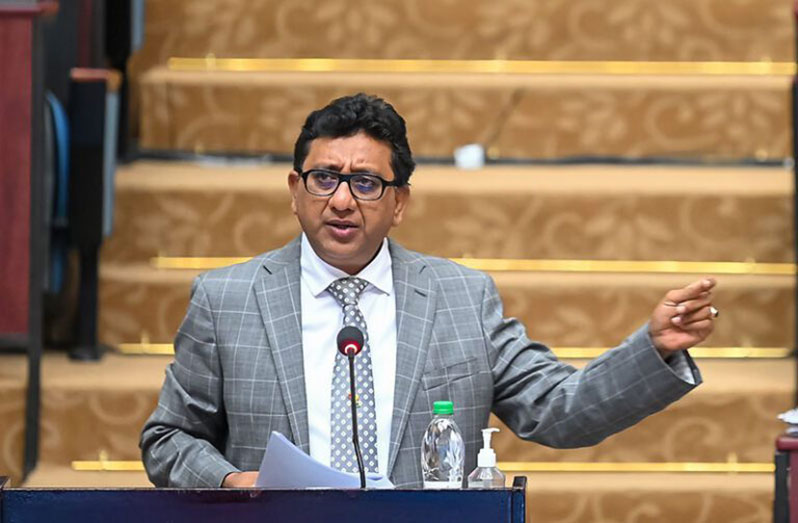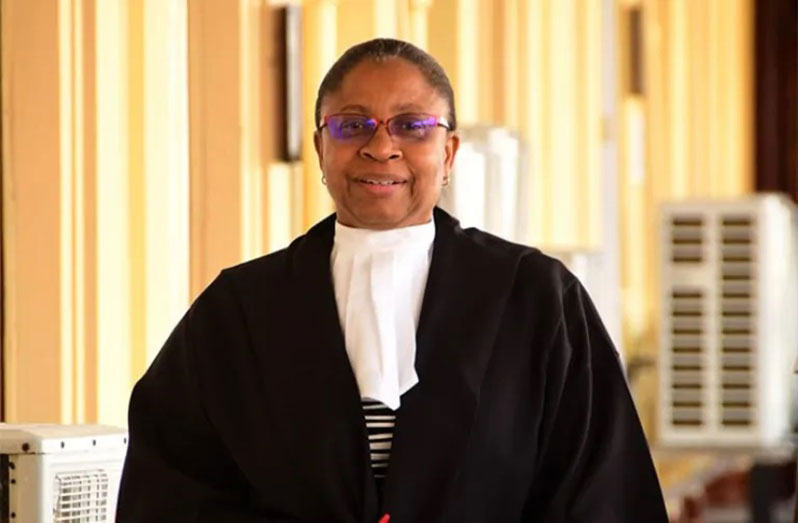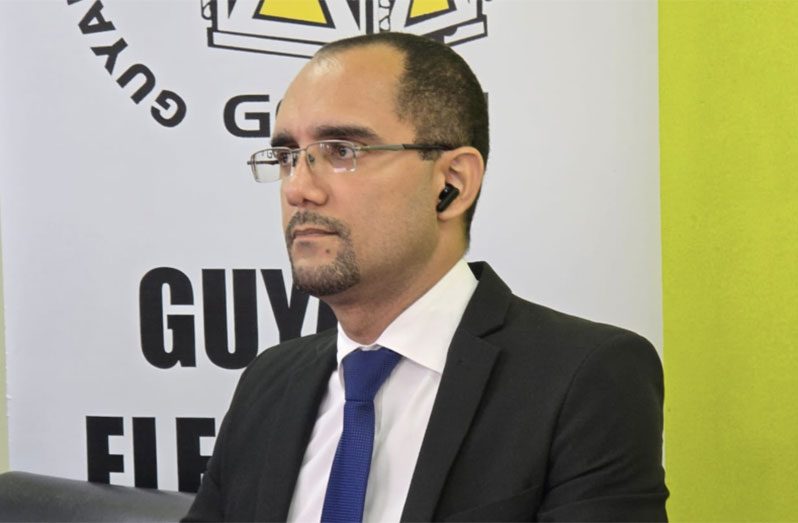–says submissions lack ‘clarity, commonsense’ and are ‘not consistent with the law’
THE legal officer for the Guyana Elections Commission (GECOM), Kurt Da Silva’s insistence that there is a residency requirement for voting in the regional elections was rebutted and rejected by Attorney-General Anil Nandlall, SC.
Da Silva is representing GECOM in the House-to-House verification case filed by Carol Smith-Joseph, the Chief Election Scrutineer of the People’s National Congress Reform (PNCR).
She is asking acting Chief Justice Roxane George, SC, to compel GECOM to conduct a House-to-House verification of persons registered on the National Register of Registrants (NRR), a database managed by GECOM that records the names of individuals who are eligible to vote in General and Regional elections. It serves as an official list of registered voters.
In his recent submission, Da Silva acknowledged that residency is not a requirement for voting in general elections.
However, he argued that Article 73(1) of the Constitution mandates citizens to reside in a specific region in order to vote in the regional elections.

Article 159, however, sets out the qualification and disqualification for electors. Among other provisions, it stipulates that to be eligible for voter registration, individuals must be at least 18 years old, and either a citizen of Guyana by birth, descent, or naturalisation, or a Commonwealth citizen who has resided in Guyana for at least one year, provided they are not a citizen of Guyana.
Speaking with reporters after another hearing on Friday, AG Nandlall emphasised that the residency issue had been definitively settled by the courts, referencing the landmark decision in Christopher Ram v. Attorney General and GECOM.
The decision in that case remains unchallenged, as it was not appealed. He pointed out that the ruling, delivered by the Acting Chief Justice in 2019, was final, and declared that residency was not a requirement to vote at any of the two elections in Guyana. The requirement was effectively declared unconstitutional.
Nandlall reasoned that this allows individuals residing in other countries to retain their eligibility to vote in Guyanese elections, as long as they meet the other qualifications outlined in the Constitution. The Senior Counsel reminded that while residency was once a requirement under the 1966 and 1970 Constitutions, it was removed in the 1980 Constitution.
“Article 159 states what the qualifications are for the purpose of registering, and for the purpose of voting. And those qualifications are that you must be a Guyanese citizen, and you must be 18 years and over. It does not speak to any issue of residency,” Nandlall noted.
He stated that amendments were made to several electoral laws in 2022 to align them with the Constitution, a change that should have been implemented much earlier.
Providing insight into the amendments, Nandlall stated: “What we removed is GECOM having to go to an address to verify whether a person is residing there. If residency is not a qualification, why is there any obligation on GECOM to verify a person’s residency at a particular address? And why is there a burden on anybody to prove that they are residing at a particular address when the supreme law [the Constitution] doesn’t require that?”
While Smith-Joseph believes that something flawed has occurred, the Attorney-General maintained that there is nothing wrong with the changes made to the law. He emphasised that, as the Chief Justice has repeatedly stated, these changes will not disenfranchise anyone.
He stressed that the only purpose of an address upon registration is to determine where an individual will vote.

POLITICAL PLOY
Emphasising that the case lacks merit, the Attorney-General pointed out: “This is a red herring thrown into this whole election equation to delay and cause misapprehension among the voting public. This is a political ploy.
“Unfortunately, you heard GECOM’s lawyer making some very, very uninformed and uneducated submissions; submissions that lack clarity, commonsense, and are not consistent with the law.”
Addressing the issues surrounding Article 73, Nandlall stated: “Article 73 is very simple; it says that persons residing in a region shall vote for their elected representatives in that region. Now, what is wrong with that? What is so mystifying about that? You will vote at the address you are registered for Regional Elections. Guyanese move from one region to another all the time.”
He stated that if a person is no longer residing at the registered address, they can choose to update their address with GECOM. Nandlall explained that Article 159, which outlines the conditions for voting in Guyana, takes precedence over Article 73 and must be upheld. He stated that Article 159 clearly establishes that residency is not a requirement for voting.
In such a situation, he reasoned, courts must interpret and apply the Constitution “in favour of the dominant provision. That is basic commonsense. If two things, [like Article 73 and 159], appear to conflict, the one that is dominant will prevail”.
Therefore, he argued that verifying residence is not necessary for either General or Regional Elections.
“Once you provide an address, it matters not; it could be the High Court building, if that is your address, that is your address. All you need an address for is to determine where you will vote,” the AG said.
In his submissions, Da Silva explained that General and Regional Elections in Guyana are often viewed as one combined election. However, he emphasised that despite the differences in residency requirements, they are distinct elections meant to elect two separate groups of representatives.
He argued that the issue cannot be addressed in the manner proposed by Smith-Joseph, as it would effectively reintroduce a residency requirement for Guyanese citizens in general elections, despite this court having explicitly declared such a requirement unconstitutional.
Instead, he proposed that the change should be made to the statutory provision to ensure that the laws governing the conduct of the elections are fully in compliance with the Constitution. The Chief Justice will hand down her ruling on April 3, 2025.



.jpg)










